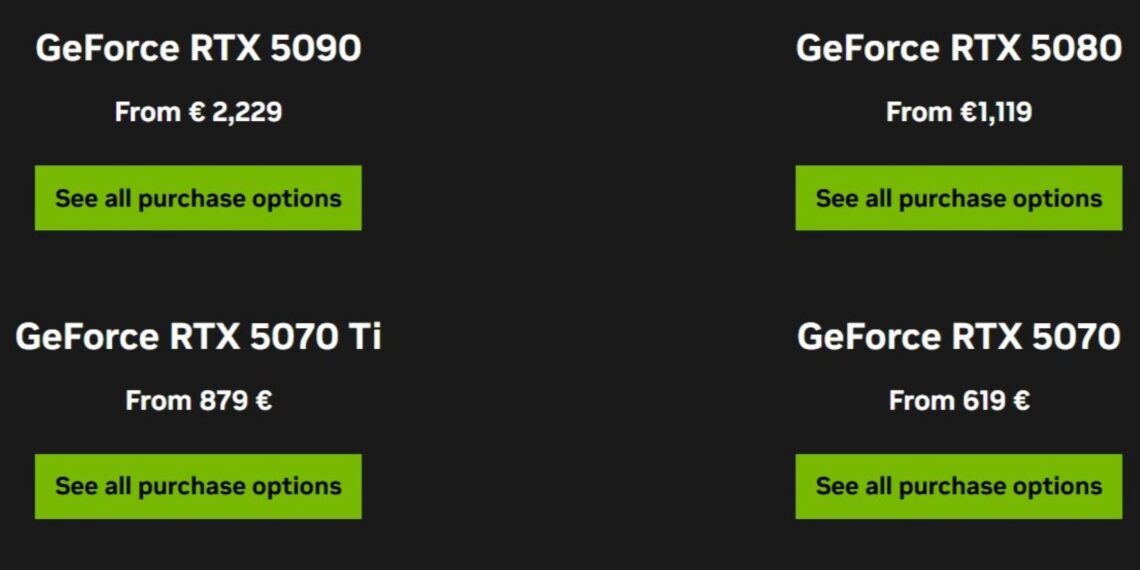European markets are experiencing a decrease in the prices of Nvidia’s RTX 50-series GPUs, attributed to the strengthening exchange rate between the euro and the dollar. As a result, Nvidia has been able to reduce the prices of several of its graphics cards by around five percent.
As reported by Videocardz, Nvidia has adjusted the pricing on its German sector webpage. The price of the RTX 5090 has been lowered from €2,330 to €2,230, while the RTX 5080’s price has changed from €1,170 to €1,120. The RTX 5070 has also seen a reduction from €650 to €620. Interestingly, the RTX 5070 Ti’s price remains unchanged at €880, likely due to the absence of a Founders Edition variant for this particular model.

Elsewhere, in the U.K., the RTX 5090 has seen a drop from its launch price of £1,940 to £1,890, largely due to the sluggish performance of the dollar against the pound, as noted by the Verge.
The U.S. dollar saw instability beginning in late January, and it has now leveled off to about a 4% decrease, according to reports from Videocardz.

Stay updated on tech trends in PC gaming
It’s important to note that the exchange rate changes do not reflect the inflated prices many GPUs are being sold at by third-party retailers. Previous reports indicated that certain models, including the RTX 5070 Ti, RTX 5080, and RTX 5090, were being marked up significantly beyond Nvidia’s suggested retail prices, with comparisons made to scalper pricing.
Insiders inform that customers remain hesitant to purchase graphics cards, despite the decrease in prices, which is primarily influenced by the exchange rate rather than an increase in demand.
Additionally, Nvidia is grappling with supply issues for its RTX 50-series GPUs. While the company has expressed intentions to stabilize supply levels in the upcoming weeks and months, it has also claimed to have had a more successful launch of this series compared to the previous RTX 40-series. However, some analysts have cast doubt on this assertion, highlighting that Nvidia released four RTX 50-series models in five weeks, whereas only one RTX 40-series GPU debuted in that same timeframe during fall 2022.






